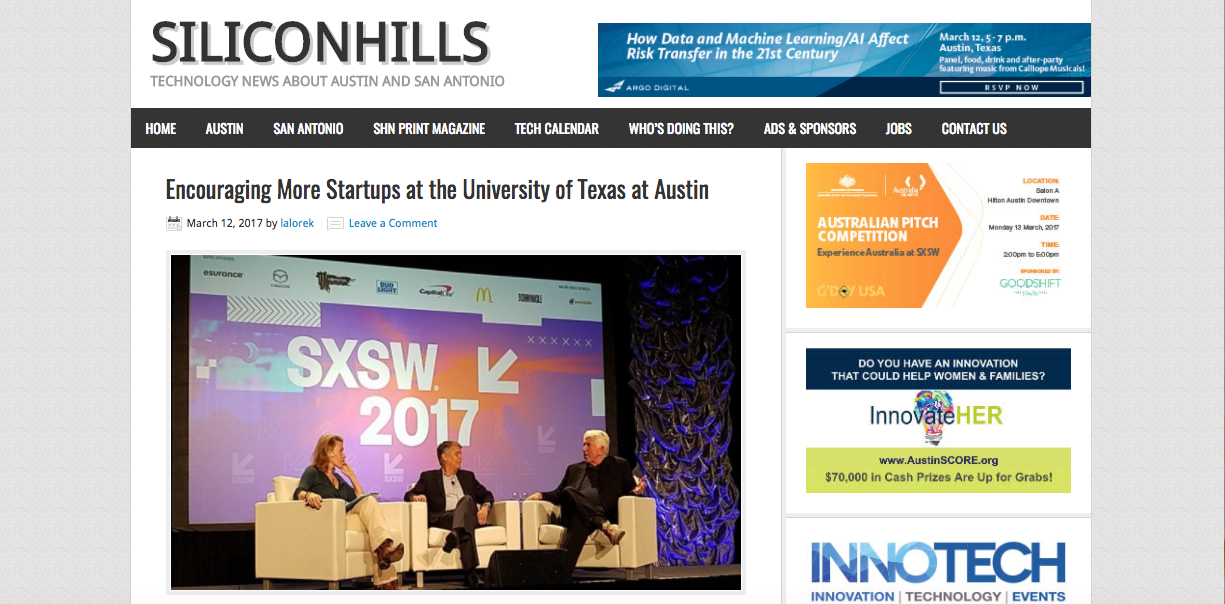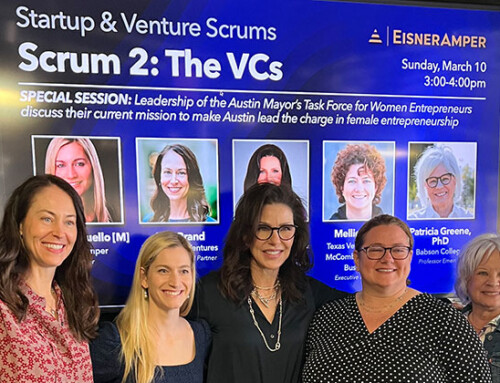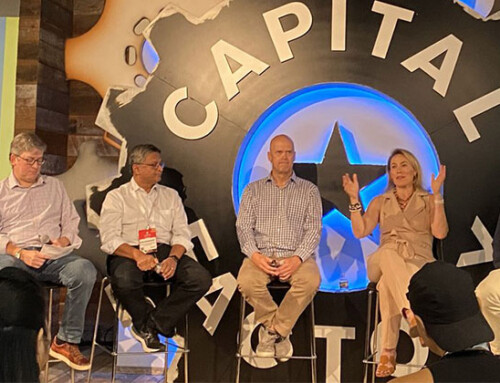This article originally appeared in Silicon Hills News
By HOJUN CHOI
Reporter with Silicon Hills News
University of Texas president Greg Fenves and Bob Metcalfe, inventor of Ethernet, explored ways that universities can have a bigger impact on the world at the “Research Universities Should be Better at Startups” session at South by Southwest.
Metcalfe, professor of innovation at the Cockrell School of Engineering at UT, said that research universities are not doing enough to change the world, and said institutions of higher education should do more to foster startups on campuses.
“You know our motto here is ‘What starts here changes the world.’ The problem is, we’re not changing the world enough, and my hypothesis is that we can do a better job,” Metcalfe said.
Kerry Rupp, partner at True Wealth Ventures, who moderated the panel, asked what universities could do to improve the startup ecosystem.
“When a professor launches a startup, the impulse of the university is that that’s a conflict of interest, so all of the ‘antibodies’ of the university descend on this poor professor to make sure there are no conflicts of interest,” Metcalfe said.
He also said that licensing offices of universities should focus less on the monetary value of an innovation, but more on its potential impact on the world.
“One thing you notice in this field is that the licensing offices of all universities are generally hated,” Metcalfe said.
Metcalfe said startups at universities are also forced to leave the campus setting too early in their development.
“[We can] delegate the management of that decision to the deans of the departments, not to lawyers that are running around with state laws saying ‘you need throw this person out’,” Metcalfe said.
Fenves, who served as the vice provost of research before taking on his current position, said that he, too, thinks that research universities should value the impact of an innovation, rather than its monetary return.
“Universities should be flexible as possible in issues pertaining to ownership, and be flexible as possible in licensing or equity interest,” Fenves said.
Fenves said he believes the first step in encouraging entrepreneurship, however, is talent acquisition.
“The best basic researchers are deciding what they want to work on by what they’re seeing in the market,” Fenves said.
According to a 2015 study published by the National Academy of Inventors and the Intellectual Property Owners Association, The University of Texas at Austin was fourth in the number of granted U.S. patents.
“Research universities like the University of Texas at Austin have two major roles that are interconnected: education and discovery,” Fenves said.
One role that universities should not play, Fenves said, is that of the investor.
“The issues around conflict of interest are certainly there, but they can doubly amplify when the university is also doing the funding,” Fenves said.
Metcalfe, who serves on the advisory council of the University of Texas System’s “Horizon Fund,” said that a major weakness of the fund is that it is allowed to lead investments.
The $50 million fund was created in 2011 by the board of regents to aid companies that are connected to the UT System.
“I would hope that the Horizon Fund would be used to fund startups that are having difficulty getting funding or might not be funding at all, because that’s where we should be stepping in,” Metcalfe said. “We can’t do that if we can’t lead.”
The panel took place Sunday evening at the Austin Convention Center, and was attended by a crowd of about 50 festival goers.
“I think the most valuable resource we can get from the [startup] community is knowledge and experience,” Fenves said.






